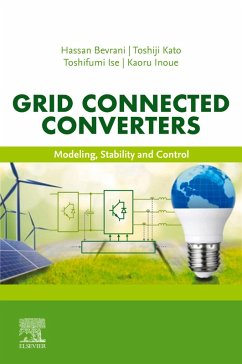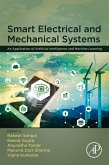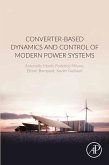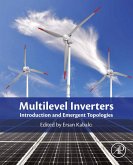Grid Connected Converters: Modeling, Stability and Control discusses the foundations and core applications of this diverse field, from structure, modeling and dynamic equivalencing through power and microgrids dynamics and stability, before moving on to controller synthesis methodologies for a powerful range of applications. The work opens with physical constraints and engineering aspects of advanced control schemes. Robust and adaptive control strategies are evaluated using real-time simulation and experimental studies. Once foundations have been established, the work goes on to address new technical challenges such as virtual synchronous generators and synergic inertia emulation in response to low inertia challenges in modern power grids.The book also addresses advanced systematic control synthesis methodologies to enhance system stability and dynamic performance in the presence of uncertainties, practical constraints and cyberattacks.
- Addresses new approaches for modeling, stability analysis and control design of GCCs
- Proposes robust and flexible GCC control frameworks for supporting grid regulation
- Emphasizes the application of GCCs in inertia emulation, oscillation damping control, and dynamic shaping
- Addresses systematic control synthesis methodologies for system security and dynamic performance
Dieser Download kann aus rechtlichen Gründen nur mit Rechnungsadresse in A, B, BG, CY, CZ, D, DK, EW, E, FIN, F, GR, HR, H, IRL, I, LT, L, LR, M, NL, PL, P, R, S, SLO, SK ausgeliefert werden.









